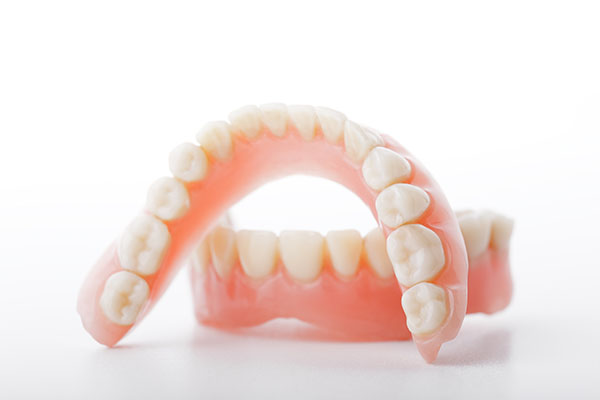4 Different Types of Partial Dentures

Partial dentures are becoming more and more popular in the dental industry. They offer a person an artificial replacement for some of their teeth if not all of them need to be replaced. Dentists often recommend the use of partial dentures because they allow someone to feel like their smile and chewing habits are normal again.
Knowing what types of partial dentures exist can be highly beneficial to anyone considering them. It is necessary that a person has at least one or more natural teeth still remaining in either the lower or upper jaw in order for partial dentures to do their job properly. Today, we will go over the different options that one has for partial dentures.
Different types of partial dentures
1. Cast metal partial dentures
As one can imagine from the name, cast metal dentures have a metal framework that attaches through clasps that cling onto dental crowns. One may worry that the metal framework is visible but it is not. The gum-colored plastic will cover this part, however, the clasps may show sometimes if a person is smiling or has their mouth wide open.
The metal framework then works directly with the acrylic-based gum covering to provide a more natural look for a person. It has been said that this method of dentures is the most popular because of their durability.
2. Flexible partial dentures
Aside from being flexible, these dentures are lightweight and not as heavy duty. A person may find that these are more comfortable to wear as well because they are made from realistic nylon-looking material. With this method of dentures, the dentist may not need to alter any of the natural teeth that are still remaining, which is an added benefit of flexible partial dentures.
Another added benefit of flexible partial dentures is that the person wearing them typically responds better and adapts to them quicker than other methods of partial dentures.
3. Tooth flipper
A dental or tooth flipper is usually used as a temporary partial denture while a more long-term one is created. While these are on the cheaper side and not permanent they do allow to lessen bone loss and movement of the natural teeth as the gums go through the healing process.
4. Fixed bridges
While someone may not realize that a fixed bridge is a partial denture option, they actually are. They are recommended for people who only have one or two teeth that are missing as opposed to a good majority. Pontics, otherwise known as replacement teeth, are used to fill the empty spaces. Fixed bridges are rare to have done because it requires that the gums and surrounding tissues be in the perfect condition which is often hard to have because of the missing teeth.
Conclusion
Partial dentures are a great resolution for anyone who has a tooth or multiple teeth missing. They allow a person to get back to their normal eating habits as well as a more natural looking smile. Though, not all partial dentures are best for everyone, knowing the different available types can be beneficial to anyone considering them.
If you still have questions about partial dentures then let us know today. Our trained office staff can help in any way that we can!
Are you considering partial dentures in the New York area? Get more partial dentures information at https://www.newyorkdentaloffice.com.
Check out what others are saying about our dental services on Yelp: Dentures and Partial Dentures.



